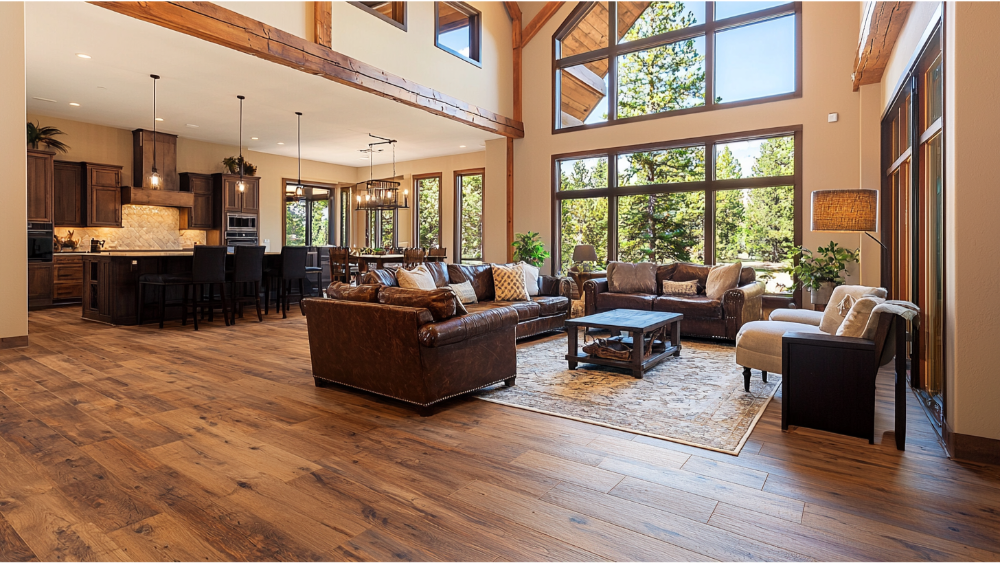Luxury vinyl plank (LVP) flooring is a popular choice for homeowners due to its durability, aesthetic appeal, and easy maintenance. However, one common concern is whether odors, such as pet smells or spills, can penetrate this type of flooring. Understanding how LVP is constructed can help address this concern effectively.
Is Luxury Vinyl Plank Flooring Odor-Resistant?
Luxury vinyl plank flooring is non-porous, which means it does not easily absorb moisture or odors. This characteristic makes it an excellent choice for areas prone to spills or pet accidents. High-quality LVP is also equipped with a protective wear layer, which acts as a barrier against liquids and smells. This wear layer not only enhances the flooring’s resistance to damage but also helps to repel odors, ensuring the surface stays fresh and clean. With proper maintenance, LVP flooring can remain odor-free for years, even in high-traffic or messy environments.
Situations Where Odors Might Linger
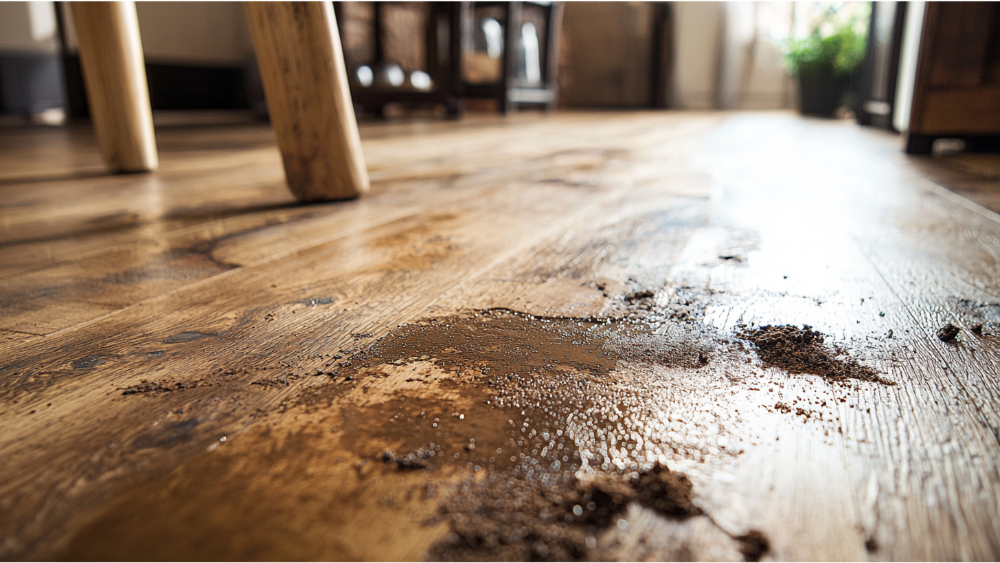
Spills Left Untreated for an Extended Period
While luxurious vinyl plank floors are designed to resist undesirable smells, leaving spills, such as wine or juice, sitting on the surface for too long can create an environment for bacteria growth, leading to unwanted smells. This is especially true if the liquid seeps into cracks or overlaps between planks. Proper cleaning is essential to ensure that no residue is left behind, preserving the odor-resistant properties of your vinyl flooring.
Pet Accidents Without Immediate Cleanup
Accidents from pets can occasionally lead to odors if not addressed promptly. Although sheet vinyl and luxury vinyl plank floors are non-porous and designed to be odor-resistant, the ammonia in pet urine can sometimes linger if it isn’t cleaned up right away. Regular cleaning and the use of pet-friendly odor-neutralizing solutions can help maintain the fresh appearance and scent of your flooring.
Moisture from High Humidity or Water Damage
High-moisture environments may create challenges for luxurious vinyl plank floors, as prolonged exposure to trapped moisture or water damage can lead to mildew or mold growth. While these floors are generally waterproof, gaps between the planks can sometimes allow water to seep in if not sealed correctly. Prompt attention to water-related issues is key to avoiding undesirable smells and ensuring the durability of your vinyl flooring.
Improper Cleaning Products Used
Using harsh chemicals or incorrect cleaning solutions can leave behind a residue that traps odors on luxury vinyl plank floors. Over time, this buildup can contribute to unwanted smells, especially in high-traffic areas. Stick to manufacturer-recommended cleaning products to help resist undesirable smells and keep your vinyl flooring in pristine condition.
Subfloor or Installation Issues
Occasionally, odors originating from the subfloor beneath the vinyl planks can become noticeable. This can occur if there was pre-existing damage, such as mold or mildew, or if spills seeped through during installation before the planks were laid. To mitigate this risk, ensure the subfloor is dry, clean, and properly prepared before installation. Using underlayment or vapor barriers may further help prevent odors from arising over time.
Ways to Prevent Odors in LVP Flooring
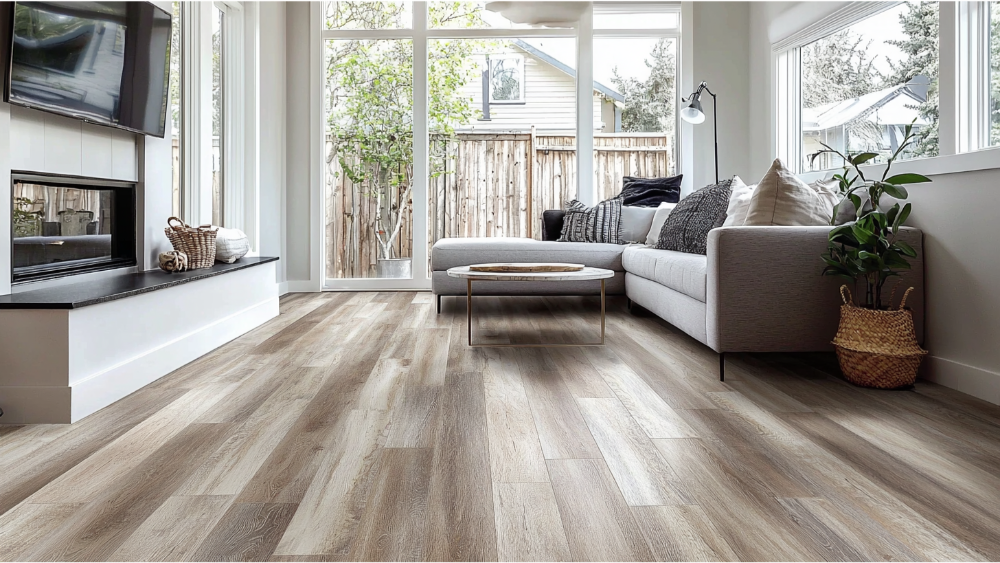
Clean Spills Promptly
Address any spills or accidents immediately to prevent liquid from seeping into gaps and absorbing unwanted smells. Use a damp mop or soft cloth with a mild cleaning solution to thoroughly clean the area, ensuring no residue is left behind. Prompt action minimizes the risk of odor retention and keeps your flooring fresh.
Maintain a Routine Cleaning Schedule
Regular maintenance is essential in preventing odors lingering on your luxury vinyl plank flooring. Use a damp mop with a manufacturer-recommended cleaning product to remove dirt and grime from the surface. Consistent cleaning not only prevents continual odors but also protects the protective wear layer from degradation over time.
Seal Gaps Between Planks
Sealing gaps during installation or as part of maintenance helps reduce the chances of moisture or debris being trapped beneath the layers, where it can cause odors over time. Proper sealing creates an additional barrier, ensuring your flooring remains odor-free.
Ensure Proper Ventilation
Maintaining good airflow in rooms with LVP flooring can prevent moisture buildup that may lead to unwanted smells. Use dehumidifiers in high-humidity environments to avoid the conditions that can contribute to odors. This practice helps maintain dry, clean surfaces, reducing the risk of odor retention.
Use Odor-Neutralizing Solutions
For persistent or stubborn smells, use manufacturer-approved odor-neutralizing solutions specifically designed for use on luxury vinyl plank flooring. These products can help eliminate lingering odors without damaging the protective wear layer or affecting the floor’s appearance. Using the right cleaning agents ensures your flooring remains both fresh and properly maintained.
Address Subfloor Issues During Installation
To prevent any odors from emanating from beneath your luxury vinyl plank flooring, inspect and treat the subfloor thoroughly before installation. Address any mold, mildew, or moisture issues, and consider using a vapor barrier or underlayment to create a secure foundation. Properly preparing the subfloor ensures long-term odor resilience and enhances the flooring’s overall longevity.
How to Remove Odors from Flooring
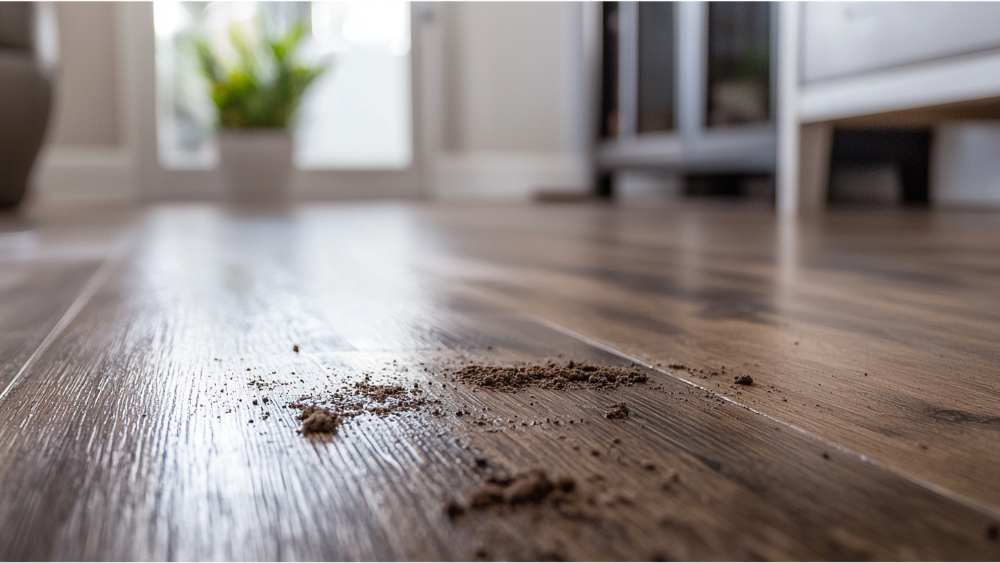
Identify and Treat Multiple Layers
Begin by determining if the odor originates from the surface, gaps between planks, or the subfloor. It’s crucial to address all involved layers to ensure the ground stays smell unfastened. For surface-level smells, start with a targeted cleaning approach using a manufacturer-recommended mild cleaner. If the issue persists, inspect below the flooring for trapped moisture or debris.
Thoroughly Clean the Surface
Use a damp mop with a mild cleaner to gently remove any residue that could be contributing to unpleasant odors. Avoid harsh chemicals that may damage the protective wear layer and compromise the flooring’s smell resistance. Work in small sections and ensure the entire flooring area is cleaned evenly. This will help restore freshness without leaving harmful residues.
Seal Gaps Between Planks
If gaps exist between planks, moisture or dirt can become trapped and promote odors over time. Seal these gaps with appropriate materials to create a continuous barrier that ensures the ground stays smell unfastened. This step not only prevents odors but also enhances the durability and waterproofing of the flooring. Proper sealing reinforces the floor’s smell resistance capabilities.
Address Subfloor Concerns
Odors stemming from the subfloor require careful attention to eliminate the source effectively. Inspect for signs of mold, mildew, or trapped moisture beneath the flooring. Clean and treat the subfloor as necessary, ensuring that it is completely dry before reinstalling the planks. Additionally, using vapor barriers, not odor, helps maintain long-term odor prevention.
Use Specialty Odor-Neutralizing Products
For stubborn odors that resist traditional cleaning, apply odor-neutralizing solutions specifically formulated for luxury vinyl plank or multi-layered flooring. These products effectively eliminate odors without compromising the surface’s integrity or smell resistance. Follow the manufacturer’s recommendations for application to ensure optimal results and maintain flooring quality.
Frequently Asked Can Odor Penetrate Luxury Vinyl Plank Flooring Questions
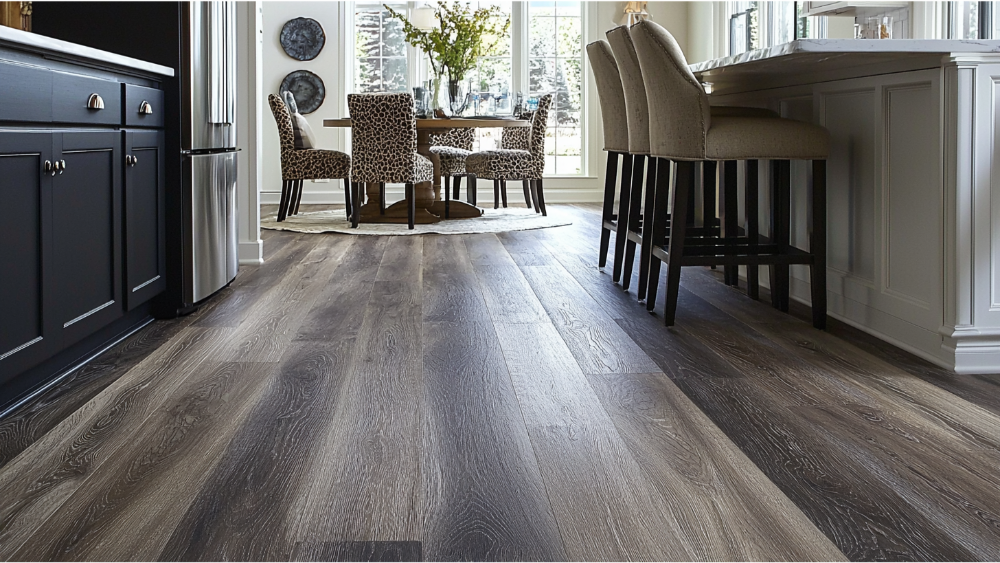
What Will Damage Luxury Vinyl Plank Flooring?
Luxury vinyl plank flooring can be damaged by prolonged exposure to moisture, especially if the tight interlocking gadget is compromised, allowing water to seep through. This can lead to the breakdown of the wear layer and eventual smell penetration caused by trapped moisture or debris. Harsh cleaning agents and abrasive tools can also harm the surface, degrading its protective coating. Proper care and maintenance are essential to prevent these issues and preserve the flooring’s durability.
How Long Does Luxury Vinyl Plank Flooring Take to Off-Gas?
Luxury vinyl plank (LVP) flooring typically takes a few days to a few weeks to off-gas, depending on the manufacturer and the specific materials used. Most off-gassing occurs within the first 24 to 48 hours after installation, as the flooring releases volatile organic compounds (VOCs) into the air. To expedite the process, ensure proper ventilation in the space by opening windows or using fans. Using low-VOC or eco-friendly LVP options can also minimize the duration and intensity of off-gassing.
Can Mold Grow Under Luxury Vinyl Plank Flooring?
Mold can grow under luxury vinyl plank flooring if moisture becomes trapped beneath the surface, especially when the subfloor is not properly prepared or there are gaps between the planks. High levels of humidity or water infiltration can create the ideal environment for mold growth over time. To prevent this, ensure the subfloor is clean, dry, and adequately treated before installation, and seal any gaps to block moisture from seeping through. Regular maintenance and monitoring for signs of moisture are key to avoiding mold-related issues.
Conclusion
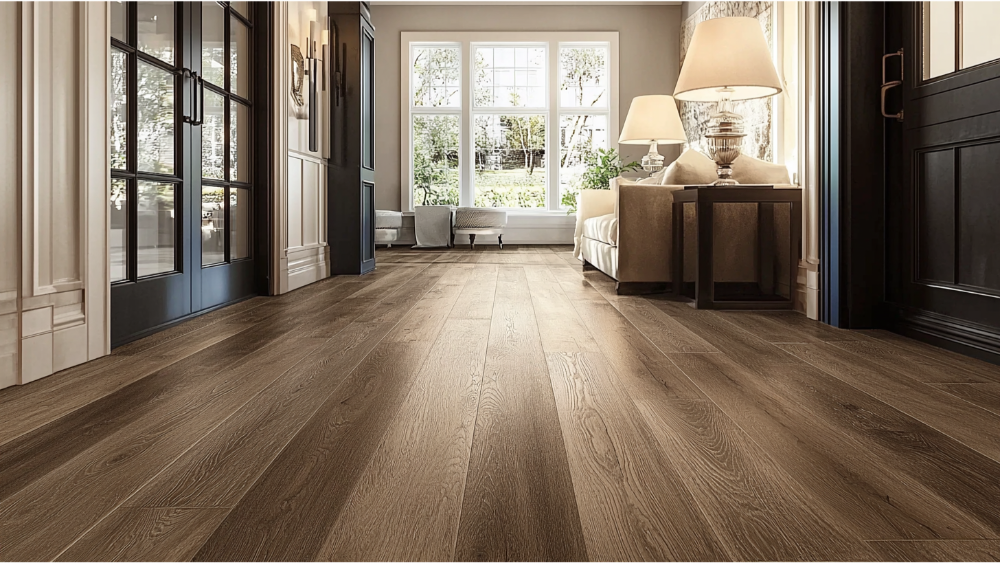
Proper care and maintenance are essential to ensuring that luxury vinyl plank flooring remains odor-free, durable, and visually appealing for years to come. By addressing issues such as moisture, subfloor preparation, and cleaning practices, homeowners can prevent odors and protect their investment. Using the right cleaning products, sealing gaps effectively, and ensuring proper ventilation will go a long way in maintaining a fresh and healthy environment. With attention to detail and adherence to best practices, luxury vinyl plank flooring can provide a long-lasting, worry-free solution for any space.




